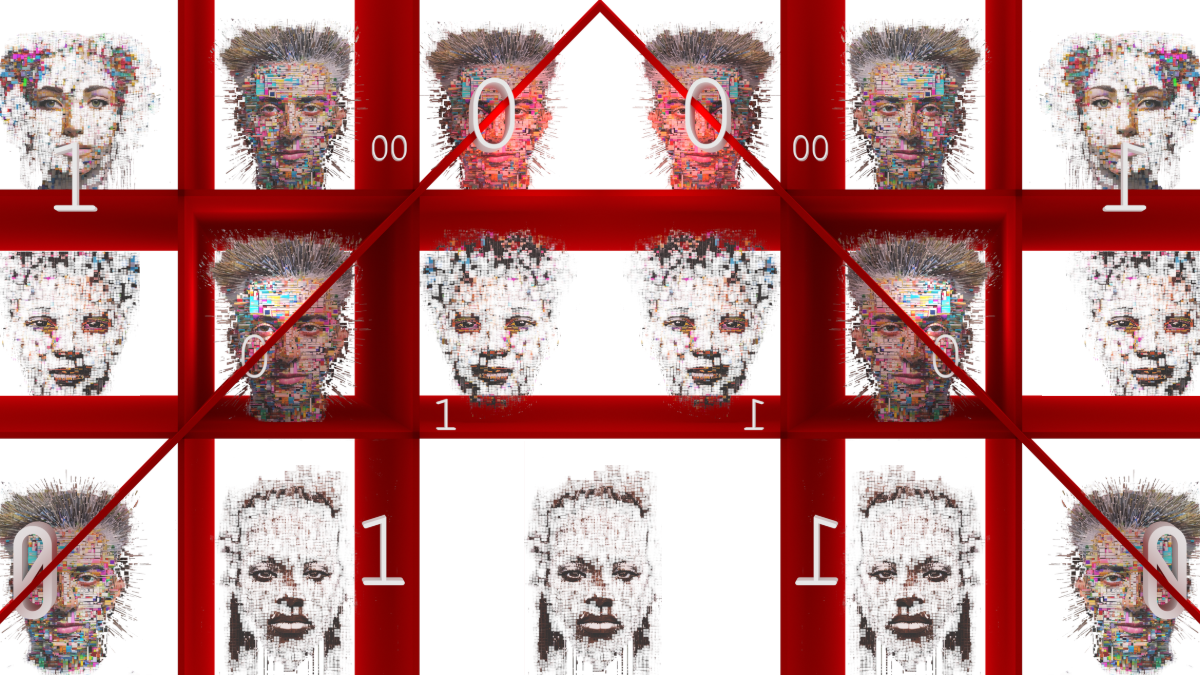Denmark Leads EU Push to Copyright Faces in Fight Against Deepfakes
Giovana Fleck / Oct 7, 2025
Amritha R Warrier & AI4Media / Better Images of AI / tic tac toe / CC-BY 4.0
Denmark wants to be at the forefront of a legal shift, both nationally and across the European Union. It began in June with the proposed amendments to its Copyright Act, which would grant individuals copyright over their own likenesses. This move challenges traditional legal frameworks, aiming to empower individuals against the misuse of their digital identities, particularly in the context of deepfakes.
According to Denmark’s culture minister, these measures could come into effect as early as winter 2025. At the Conference on Copyright and Artificial Intelligence on September 18, organized by the Danish Ministry of Culture, Minister Jakob Engel-Schmidt told reporters: “If we don't protect the right holders, and if every citizen is able to either deepfake or copy the arts and the works of people, you take the livelihood away from the artistic community.” The conference was also part of the agenda associated with the Danish Presidency of the Council of the European Union.
Minister Engel-Schmidt has also been urging European counterparts and the European Union to adopt similar measures. With Denmark leading the EU Council, it will push for a discussion on the need to safeguard citizens and artists against digital impersonation.
Copyright vs. personality rights
Legal experts call attention to the risks of amending copyright law and bypassing personality rights. While copyright protects creative works, personality rights protect an individual's image, voice, and identity. Luca Schirru, an intellectual property lawyer, emphasizes that deepfakes should be handled through personality rights, which are "directly connected to the honor, intimacy, and dignity of the person."
Lawyers like Schirru and Alice Lana question whether this move distorts the purpose of copyright law. For centuries, copyright and its European counterpart, droit d'auteur, have protected creations of the human intellect, a song, a poem, a painting. The question, then, is whether a human face can be considered an "original creation" in this sense.
Confusing these two frameworks could lead to unintended consequences. As Schirru notes, copyright can be transferred or sold, while personality rights are inalienable. “Copyright can be a trap; it can turn our bodies into consumer goods. What kinds of precedents does it open?” asks Lana, board member of the Copyright Observatory Institute (IODA) and Creative Commons Brazil.
Policy gaps and enforcement challenges
Experts in Denmark were unanimous in affirming their experiences with take-down requests in large platforms such as Instagram and TikTok: they rarely work. Tech Policy Press has covered how such systems fall short in providing justice for victims. For Ask Hesby Holm, CEO at Digital Accountability, amending copyright law seemed like an interesting proposition, especially since artists have had more success removing infringing material than ordinary citizens.
Hesby Holm's organization focuses on digital and human rights within EU legislation, particularly the Digital Services Act (DSA). He expresses concern that the DSA's provisions for content removal are unclear, citing instances where platforms like Google have not acted promptly on complaints. He advocates for making the creation of deepfakes a criminal offence, aligned with new copyright laws rooted in consent. “The internet should be redesigned with consent as a core principle, rather than sharing as a principle.” He notes that while the DSA is a step in the right direction, it is an "after-effect regulation" that needs a more proactive approach.
The Danish initiative can be seen as a response to the perceived shortcomings of broader EU regulations. While the DSA introduced new rules for platform accountability, its provisions on "timely removal" are often criticized for being too vague and difficult to enforce. "The obligations about notice and actions are very opaque," says Hesby Holm. Thomas Heldrup adds that the proposed amendments currently “only cover the making available [and] sharing of deepfakes,” and their applicability remains unclear.
Risks and global approaches to identity rights
In this context, the lines between personal identity and intellectual property are blurring. “The key issue we’ve had in enforcing our members’ right to voice, image, etc., is the lack of recognition of personality rights as a basis for removing content from online platforms such as Meta and TikTok,” explains Thomas Heldrup, head of Content Protection and Enforcement at the Danish Rights Alliance. “The protection is proposed in the copyright act, which we believe will give us the best conditions to enforce the rights when reporting them to online platforms.”
The risks of selling one’s likeness are becoming increasingly evident. In early 2025, World, a cryptocurrency company founded by Sam Altman, offered payments for iris scans to build a biometric database, which was later banned by Brazil’s data protection authority. Similarly, US actor Scott Jacqmein discovered that his face and voice were being replicated in TikTok ads. He had sold his likeness for avatar creation, but regretted the decision after seeing its consequences.
AI avatars are different from deepfakes, though both create digital representations of people. As Alice Lana points out, copyright is an economic framework, designed to be bought, sold, and licensed. When applied to a person’s identity, it risks turning faces and voices into commodified assets. “Companies are more interested in defending copyright than human rights,” she claims.
European momentum and global implications
As Denmark reached an agreement on its amendments, other European countries followed suit. France relies on existing laws to protect image rights, allowing legal action against non-consensual use, especially when altered, private, or damaging to dignity.
“The world is looking at what Europe is doing; other regulators also want to act,” says Lana, pointing especially to Latin America. “In many ways, Denmark is interesting because we have a very critical scenario, with a high screen time and a government that, so far, has been bad at protecting people,” said Hesby Holm.
While technology for detecting deepfakes is still in its nascent stages, solutions like watermarking and provenance standards could play a crucial role. WITNESS, an organisation dedicated to documenting human rights abuses, has emphasised that technical standards like these "must be auditable and transparent and must include clear, human-readable labels." Furthermore, the European think tank Open Future argues in its white paper, "Beyond AI and copyright, funding a sustainable information ecosystem", that a broader approach is needed, one that recognises that AI systems rely on the entire public information commons, not just copyrighted works. This means, as they propose, establishing a new redistributive framework that channels value back to all contributors to the information ecosystem, from creators to public institutions like libraries and museums.
Ultimately, the debate over Denmark's law is a microcosm of the larger struggle to regulate a rapidly evolving technology. It pits the pragmatism of enforcement against the principles of centuries-old legal traditions. As Schirru and other experts suggest, the most promising long-term solutions may lie in a combination of approaches: strengthening transparency, developing clear technical standards for watermarking and provenance, and providing a clear legal basis for action.
Authors
